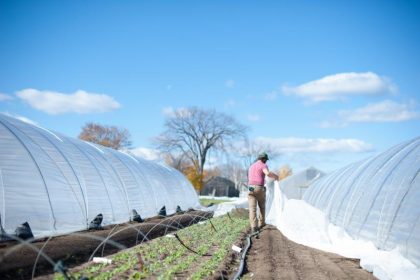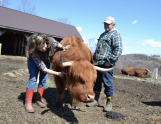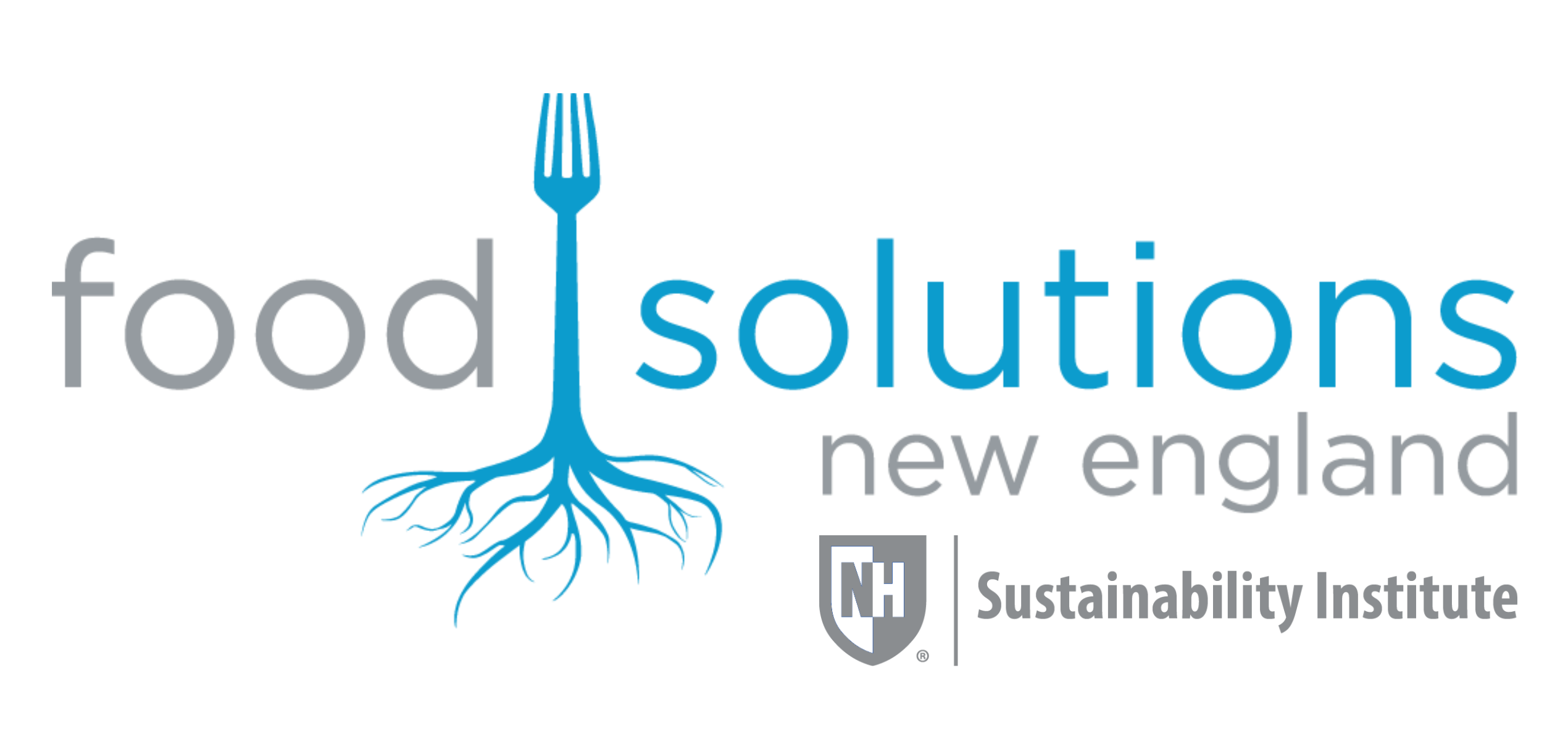
 Special from our colleagues at The Carrot Project
Special from our colleagues at The Carrot Project
Ray Shatney and Janet Steward have been raising prizewinning Highland cattle on their family farm, Greenfield Highland Beef, in Greensboro Bend and Plainfield, Vermont, since 1967. In 2010, they took out a loan for a tractor backed by The Carrot Project — equipment that was the right size for their property and its terrain, which is still used on the farm today. In May, Janet joined us for a virtual panel to share how COVID19 has affected small farm businesses.
The virus “has changed most everything that we do,” she told us. That includes both selling breeding stock nationally, and meat locally. “The restaurants that we sold to shuttered; the farmer’s markets closed.” While Janet and Ray have successfully sold some frozen meat to local food coops, and started offering home delivery for self-isolated or quarantined customers, that’s not a permanent solution. “In terms of the future, we’re hoping the market stabilizes, so we can figure out how to manage supply and demand,” Janet says. “We’re just hoping we’ll be able to weather this pandemic, and come out the other side with the appropriate size herd and the appropriate amount of beef for our customers.”
Like many of The Carrot Project’s clients, Janet is dealing with enormous uncertainty and new risks with creativity and resilience — and even finding silver linings. Janet is one of 13 farmers (so far) who has benefited from The Carrot Project’s rapid response to the pandemic, by participating in virtual consulting sessions. “I try to make lemonade out of lemons, and this has forced me to do something I’ve needed to do for a long time, which is develop an online marketing presence,” she said. The Carrot Project connected Janet with a marketing consultant, who called her on the phone to help her set up an online ordering platform. “This is critically important,” Janet said. “I need more time to spend with animal care instead of sitting in front of a screen 5, 6, 7 hours a day, trying to keep selling beef. I hope this online change will allow us to continue to be sustainable in the new normal, whatever that is.”
Many farmers like Janet are asking similar questions. To meet our clients’ changing needs over the past few months, The Carrot Project has switched gears from wrapping up our pre-season planning to responding to emergency business support requests due to the pandemic. Our business advisors participated in an emergency business planning training, we developed a work aid to help business advisors focus their COVID19
conversations with clients, and we are constantly evaluating new and emerging resources that could benefit clients.
We want the farms and food businesses that we work with today to be here in 5, 10, and 50 years from now — and right now, they need help making it through this pandemic. We do this work because their success is the foundation of a strong local food economy.




